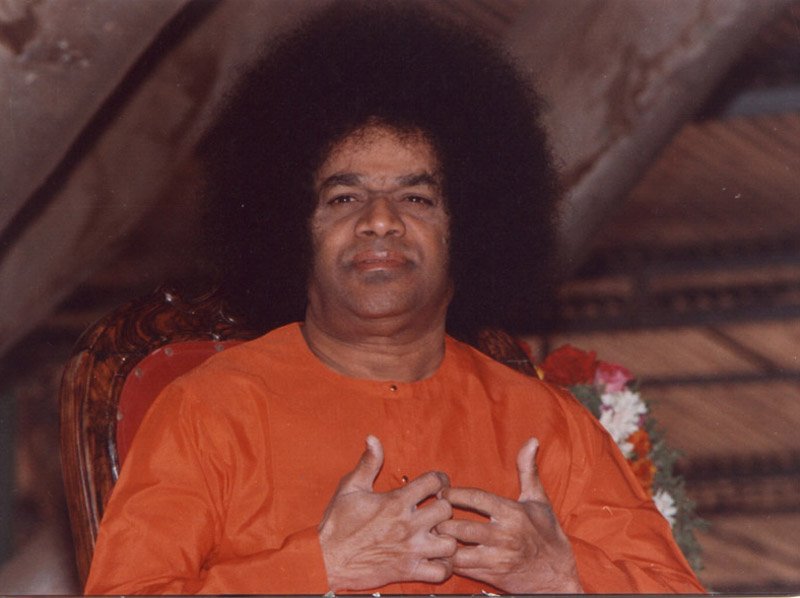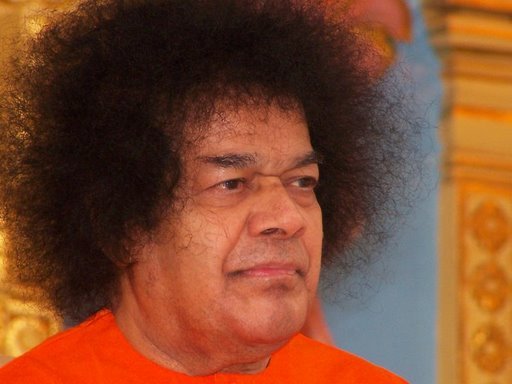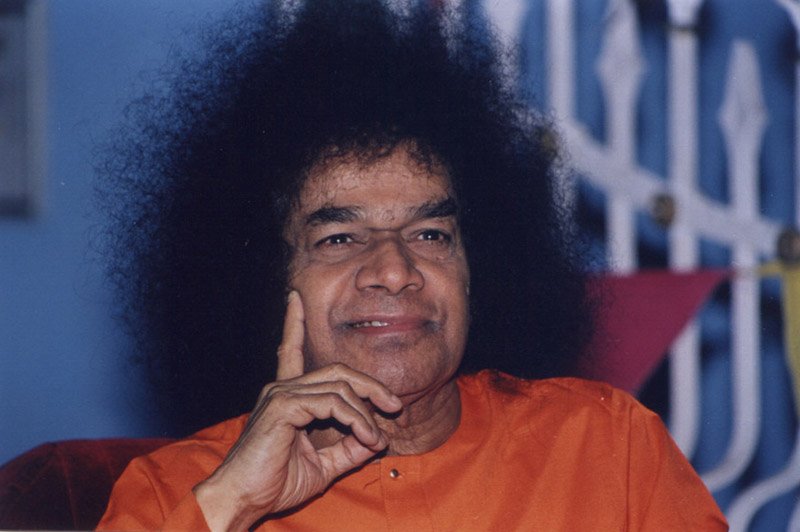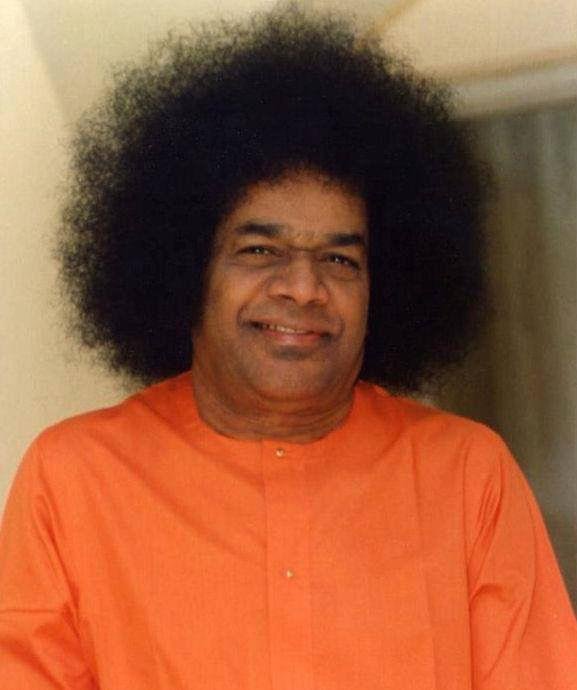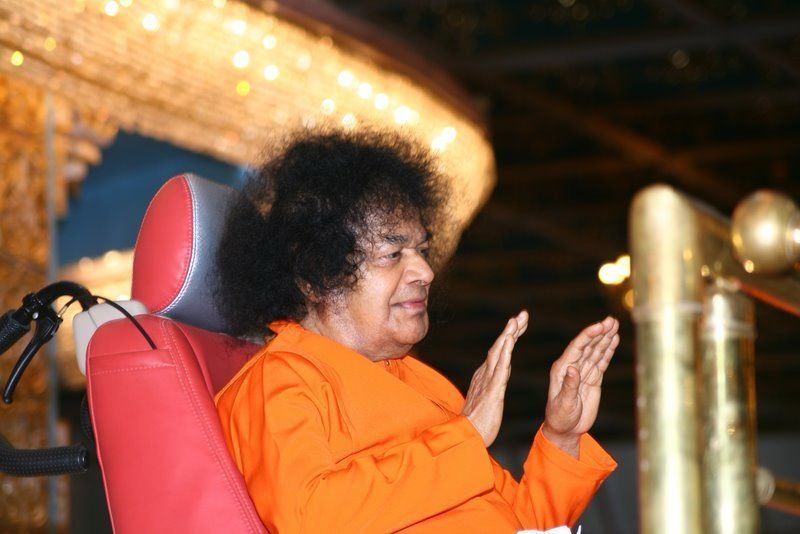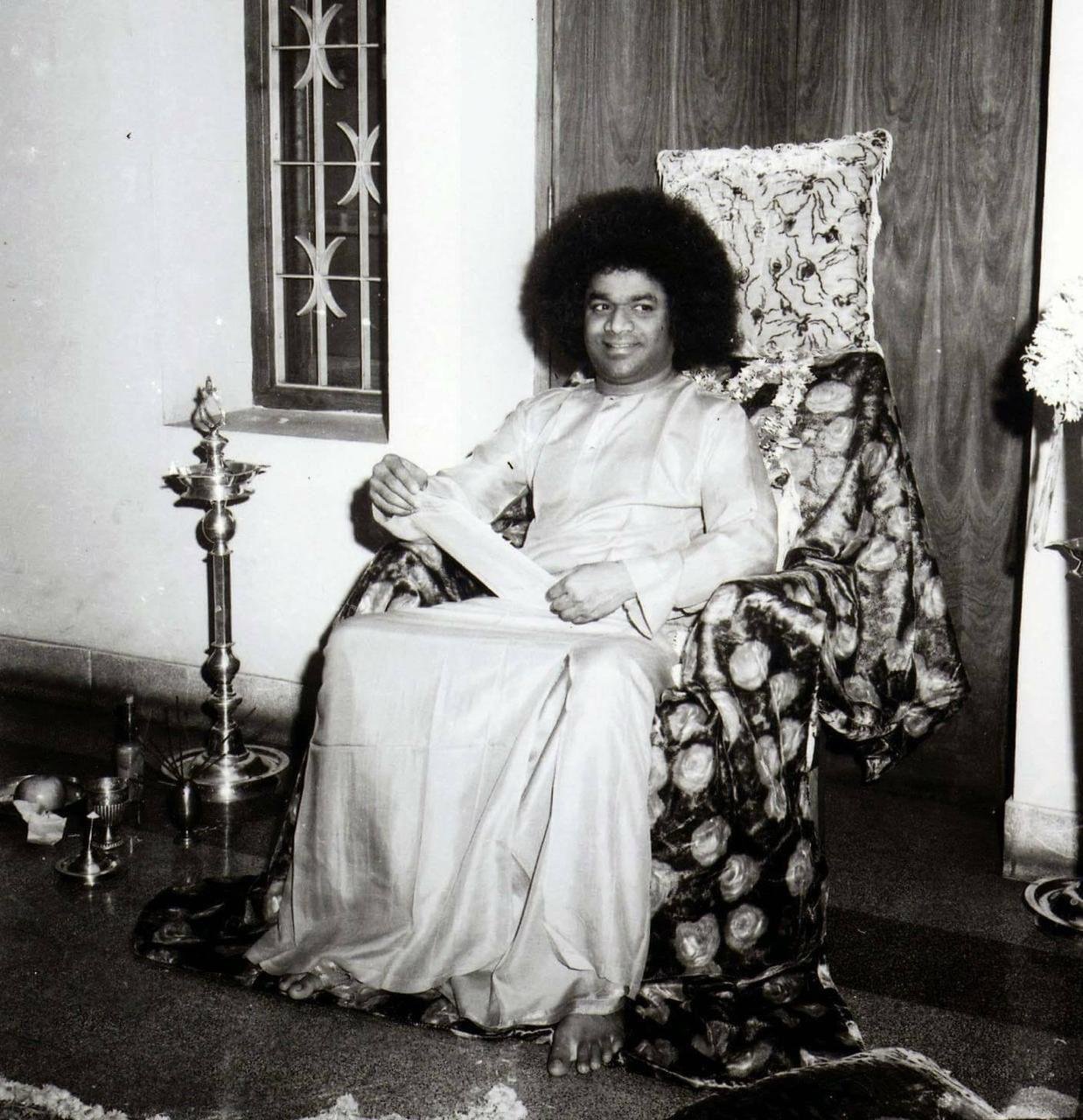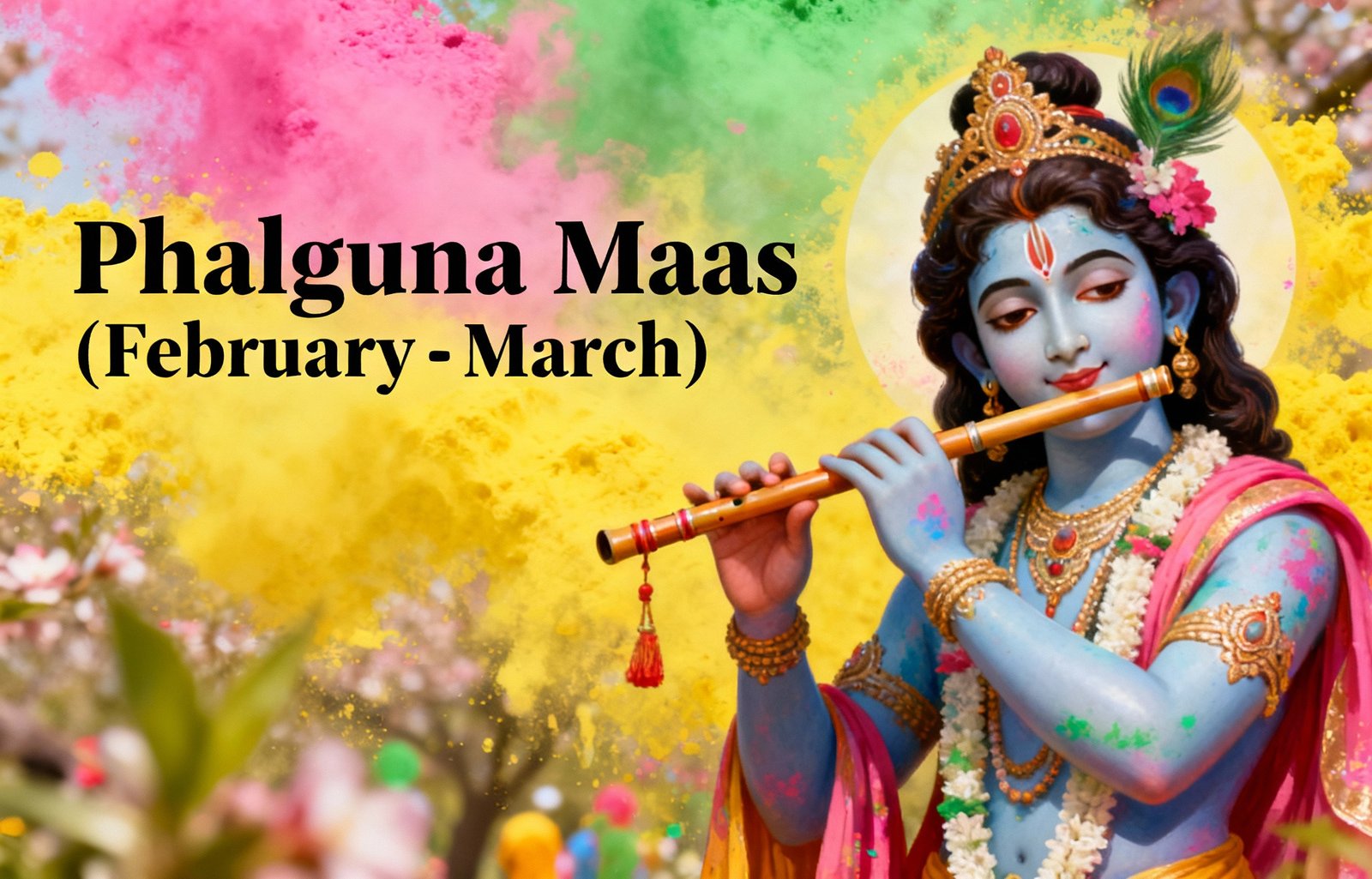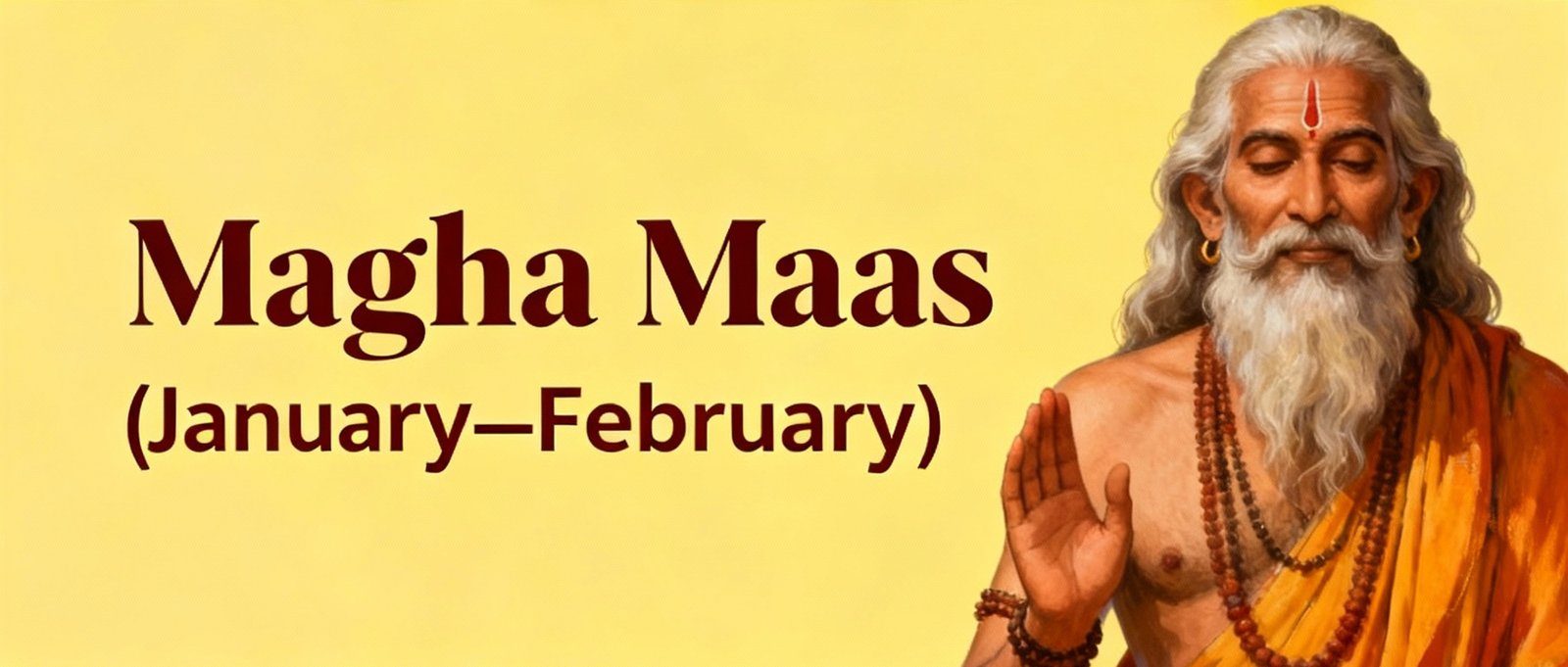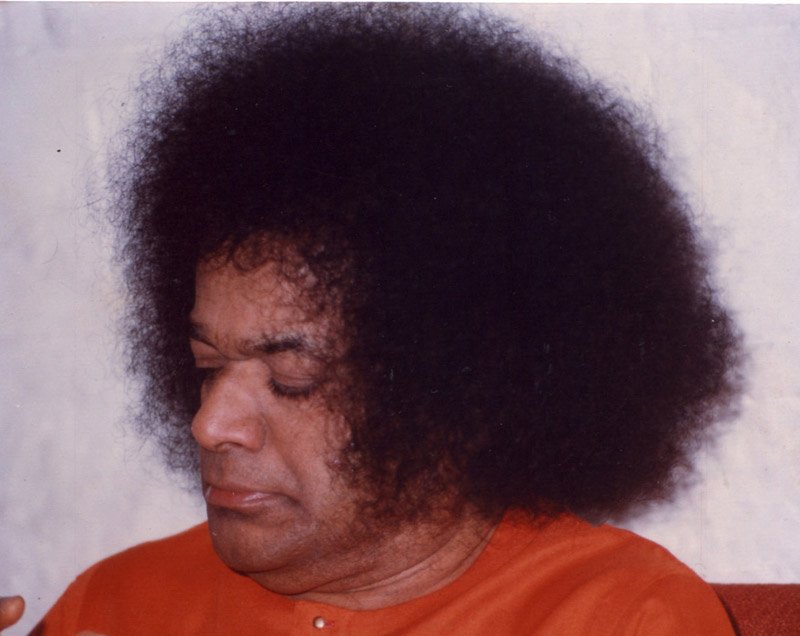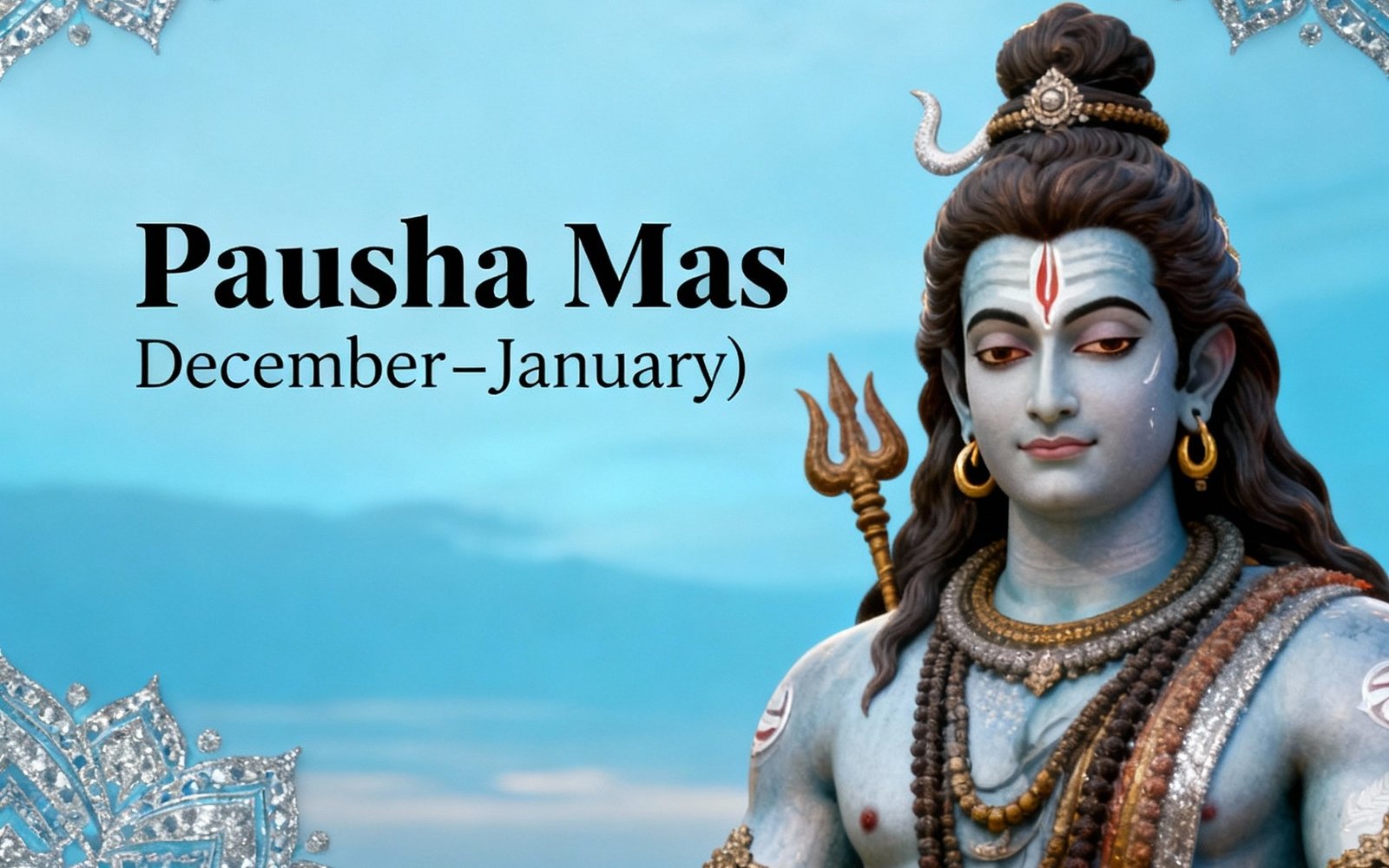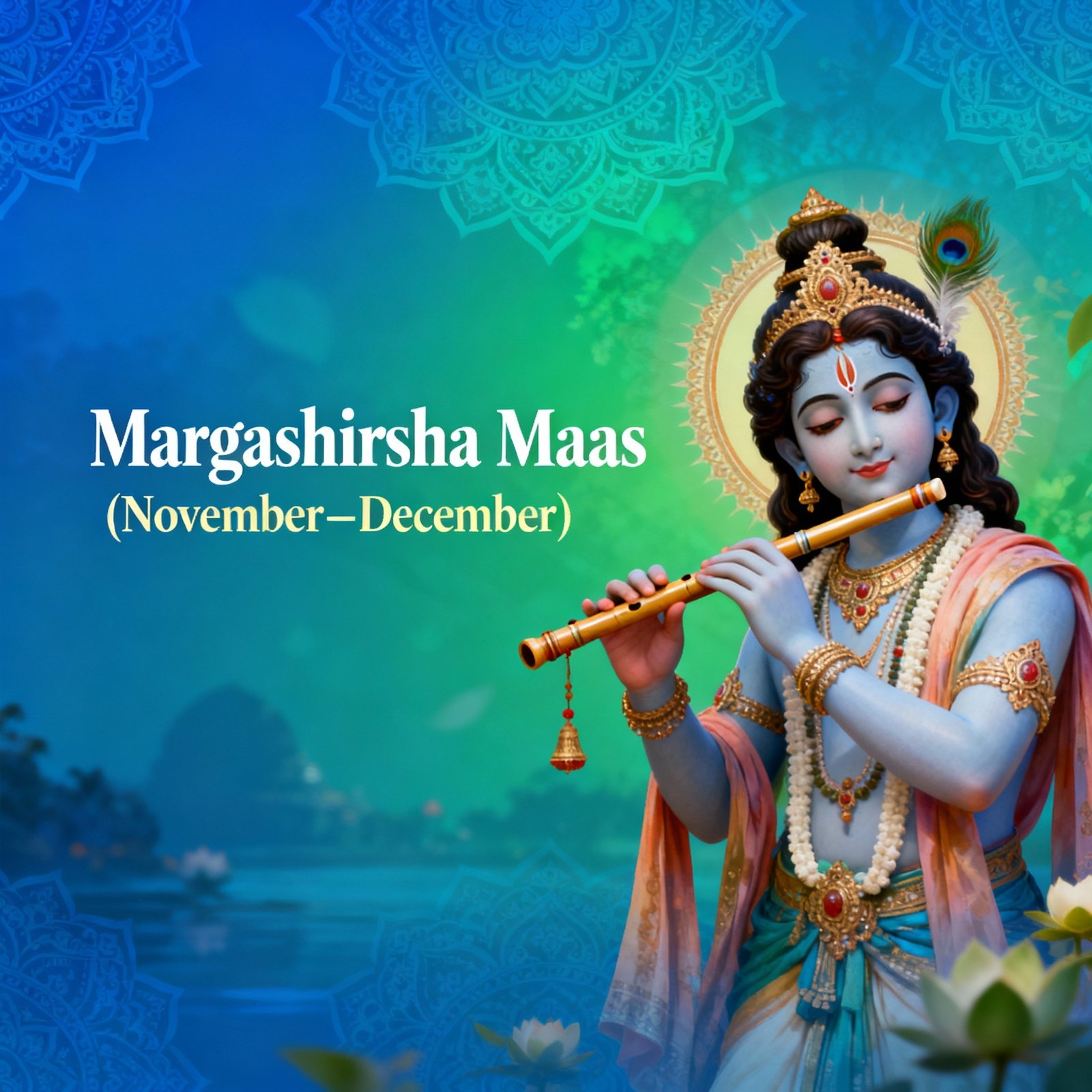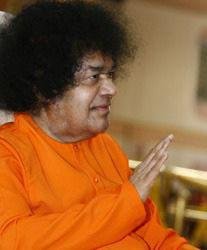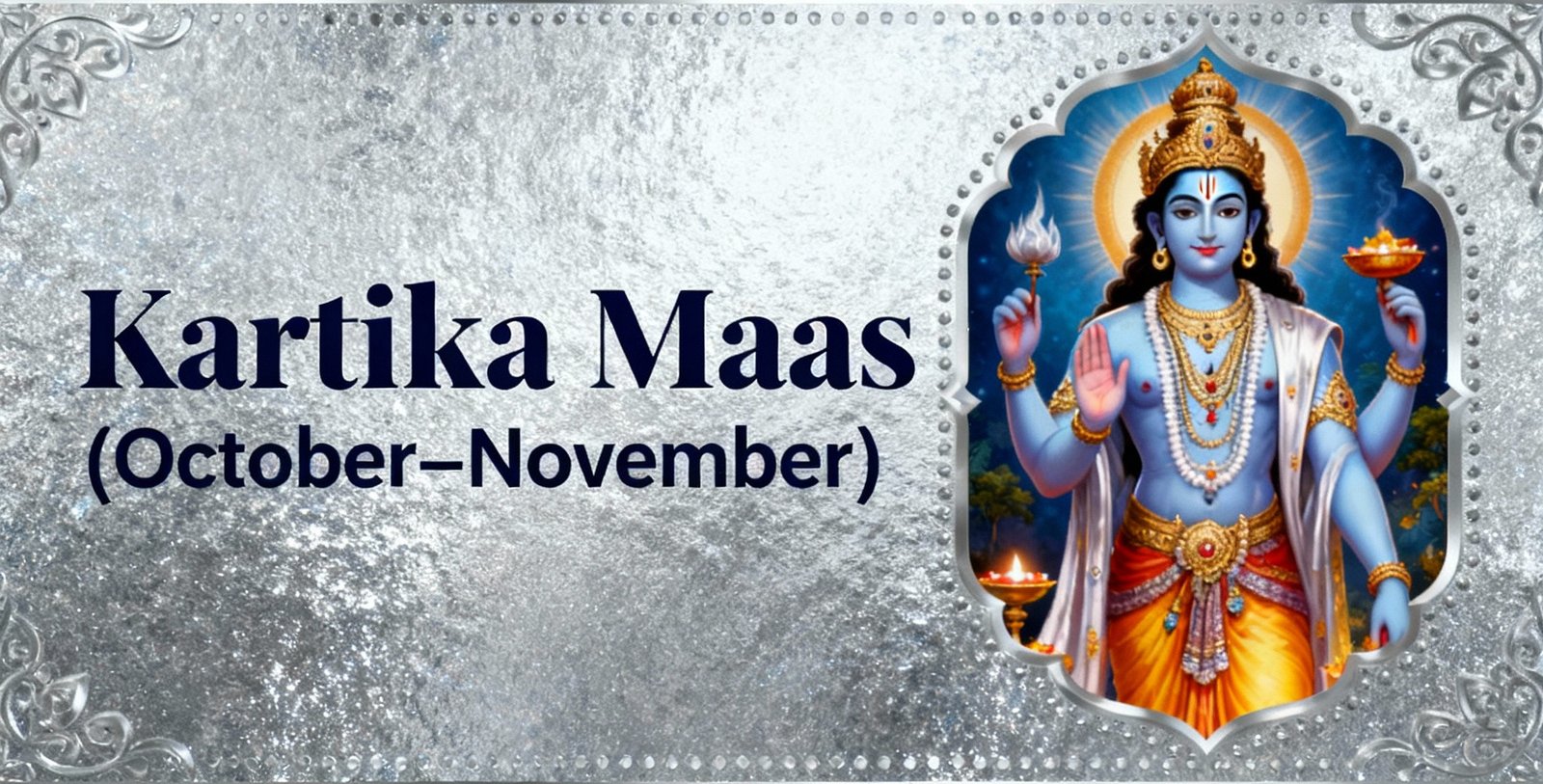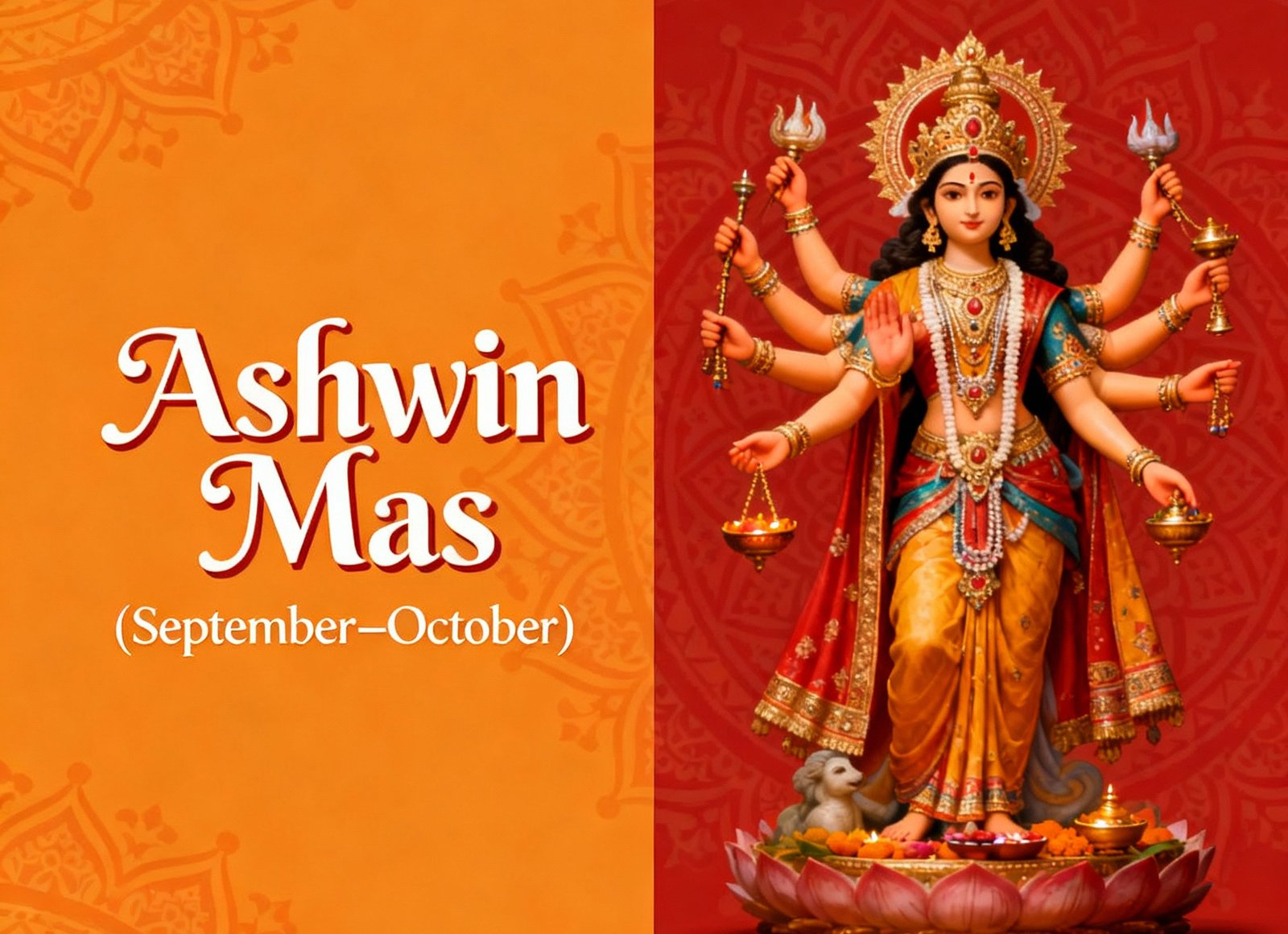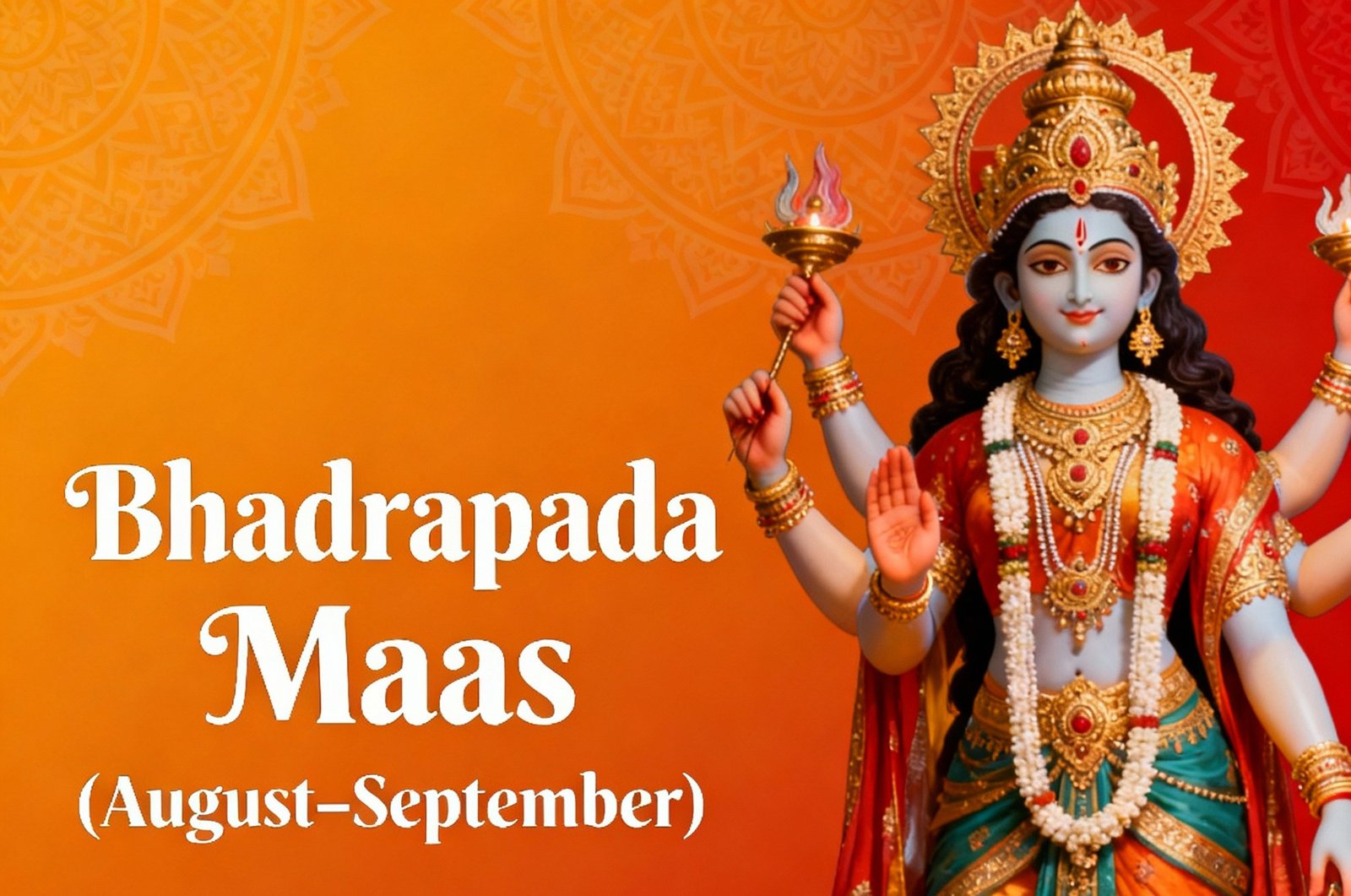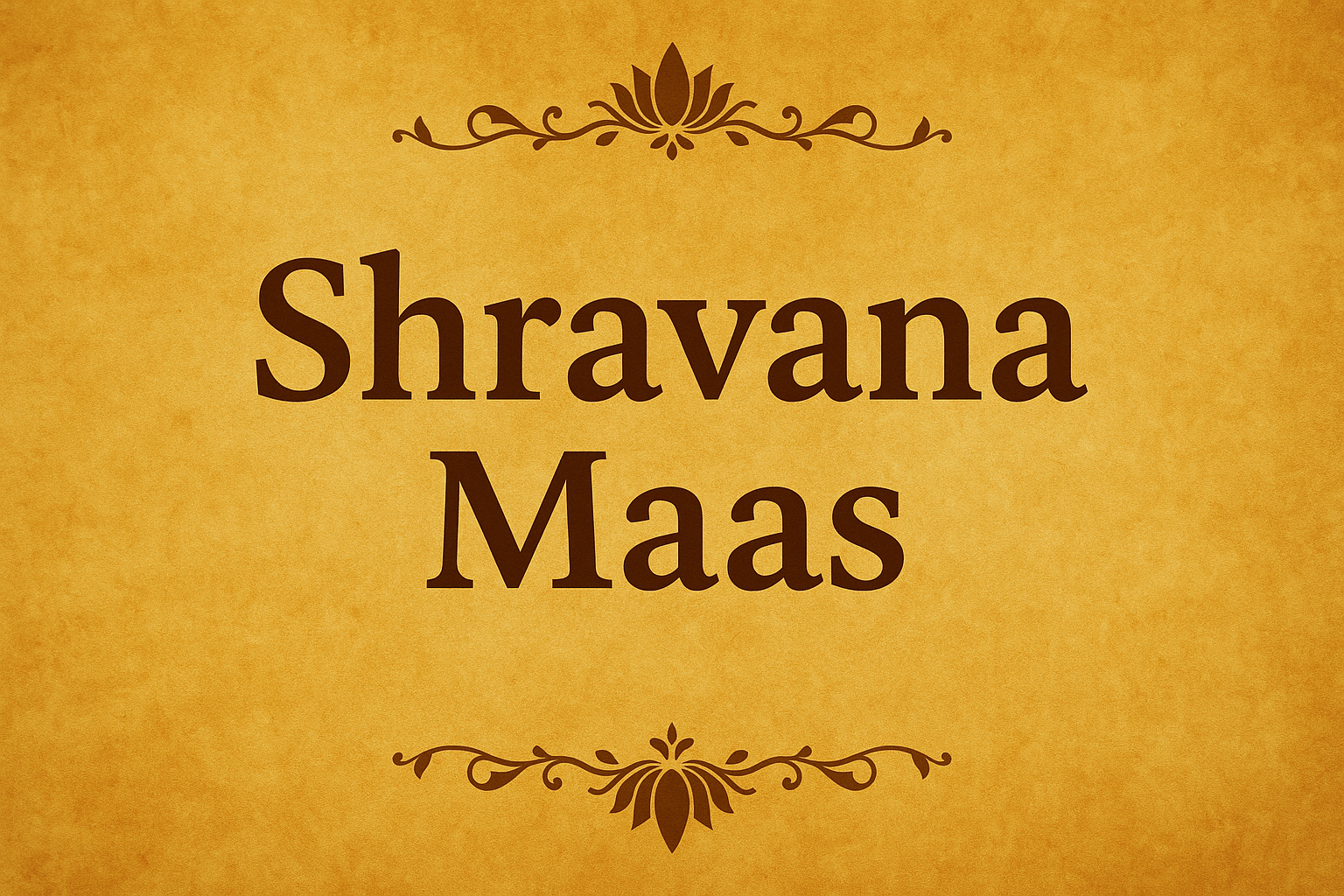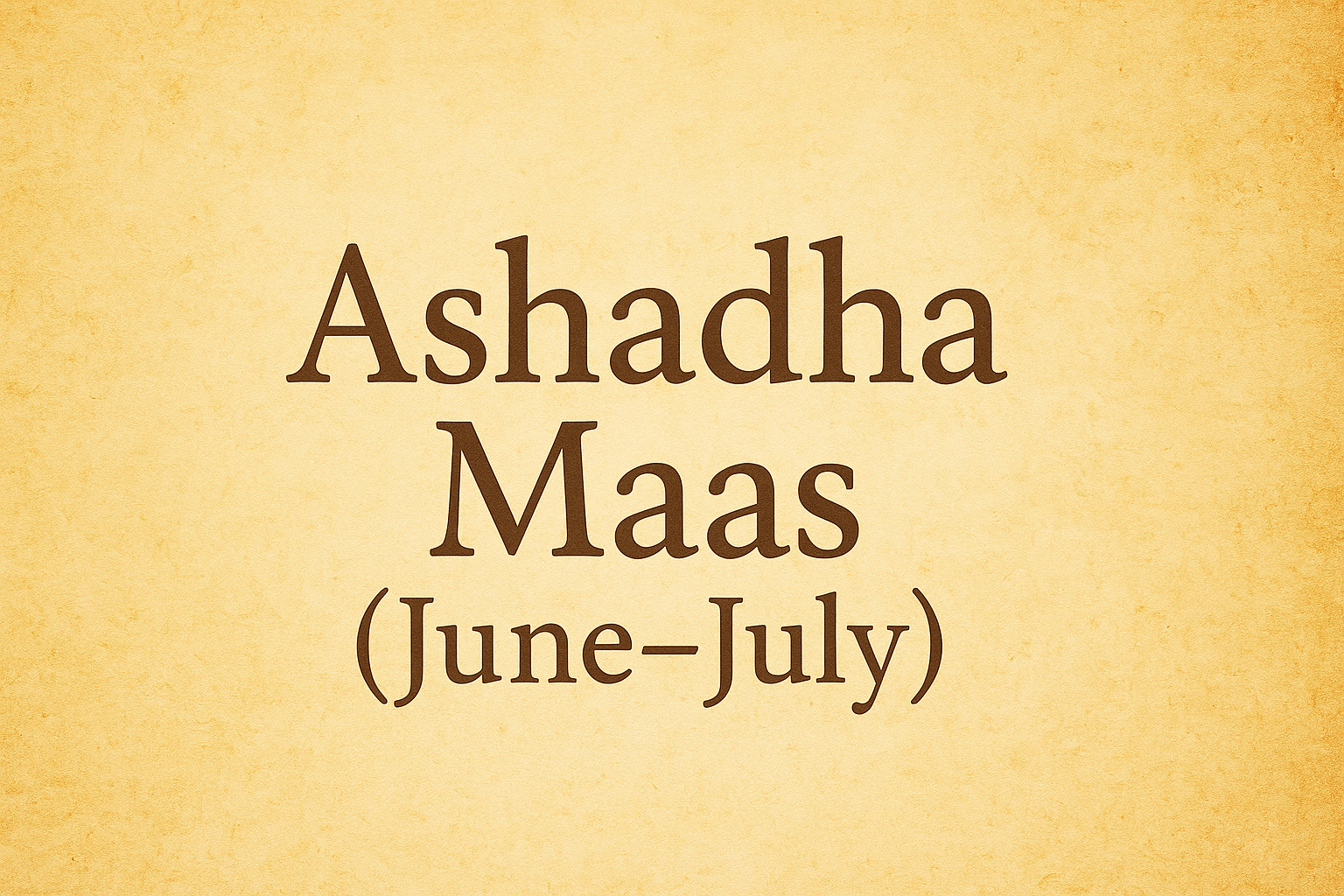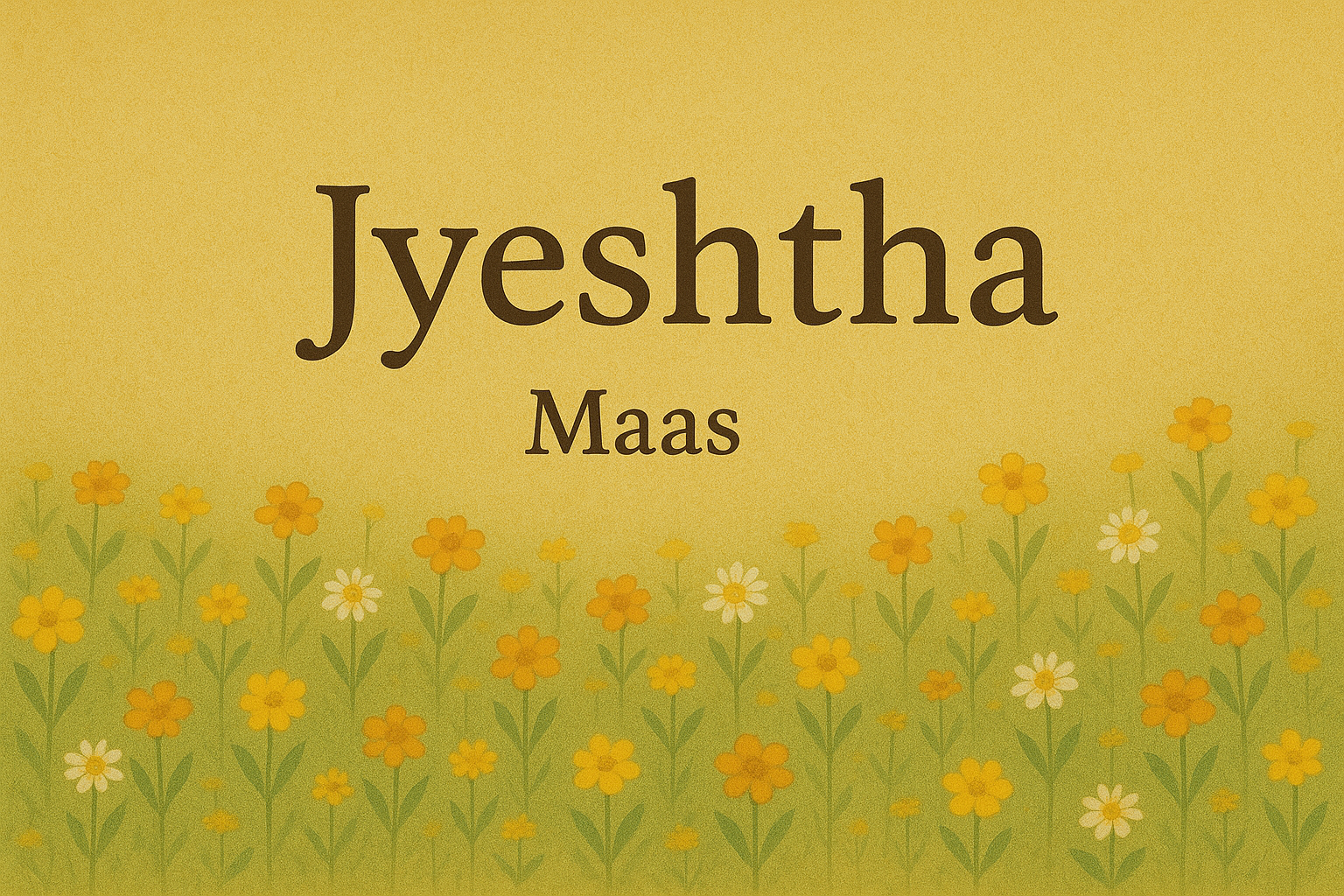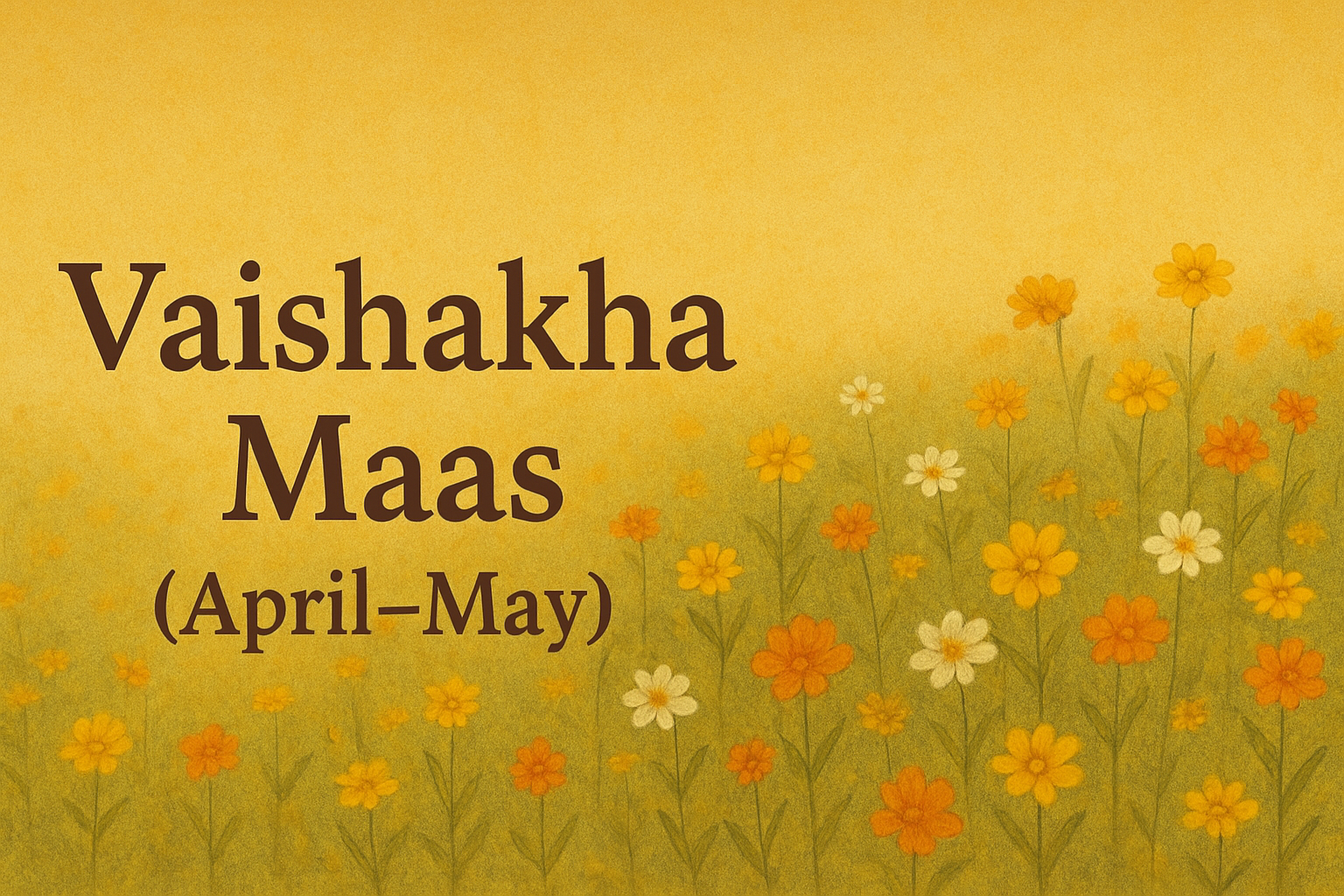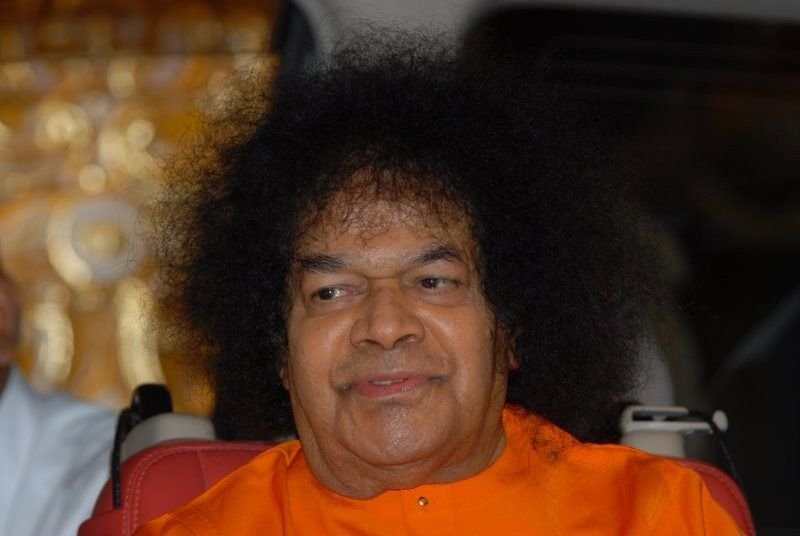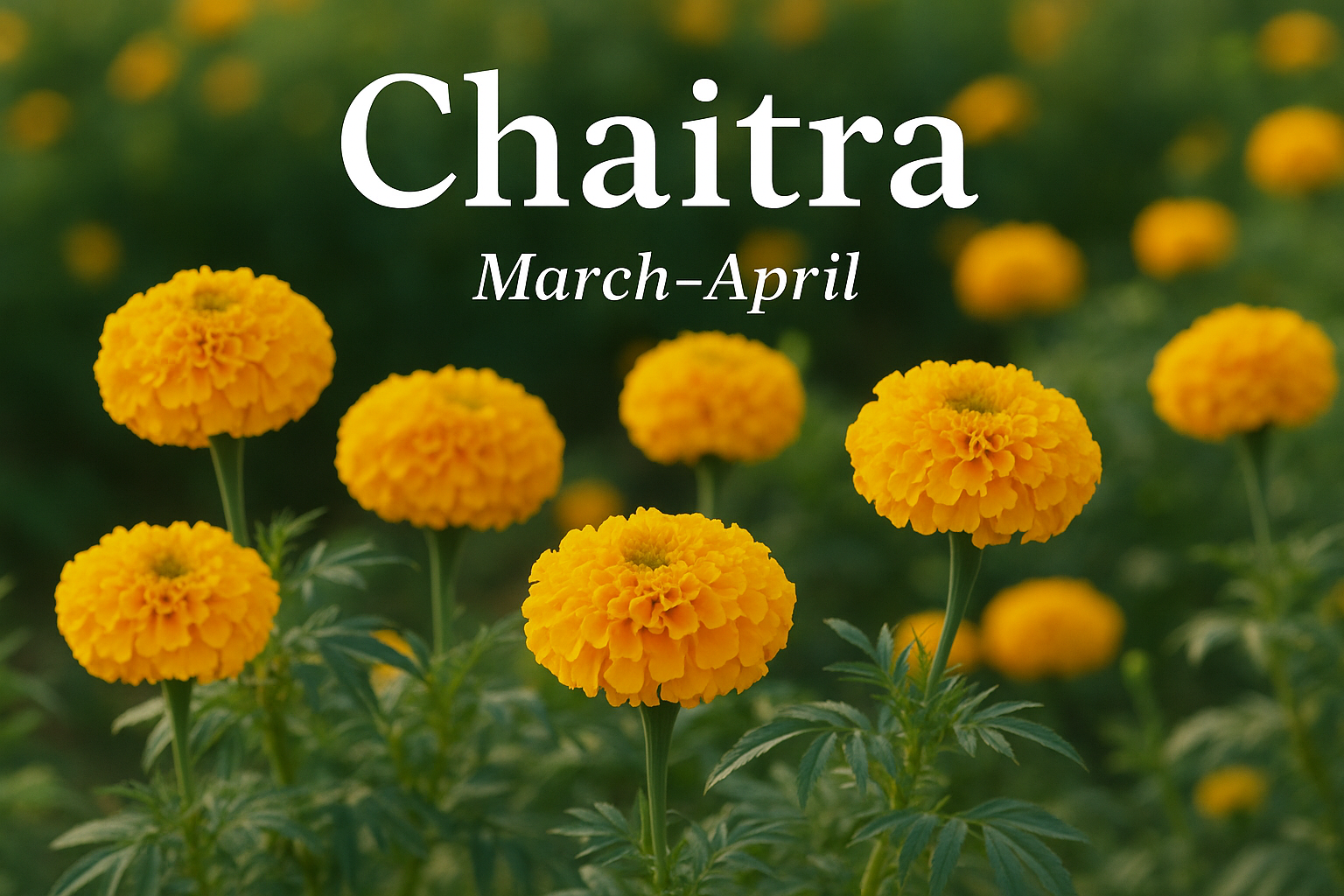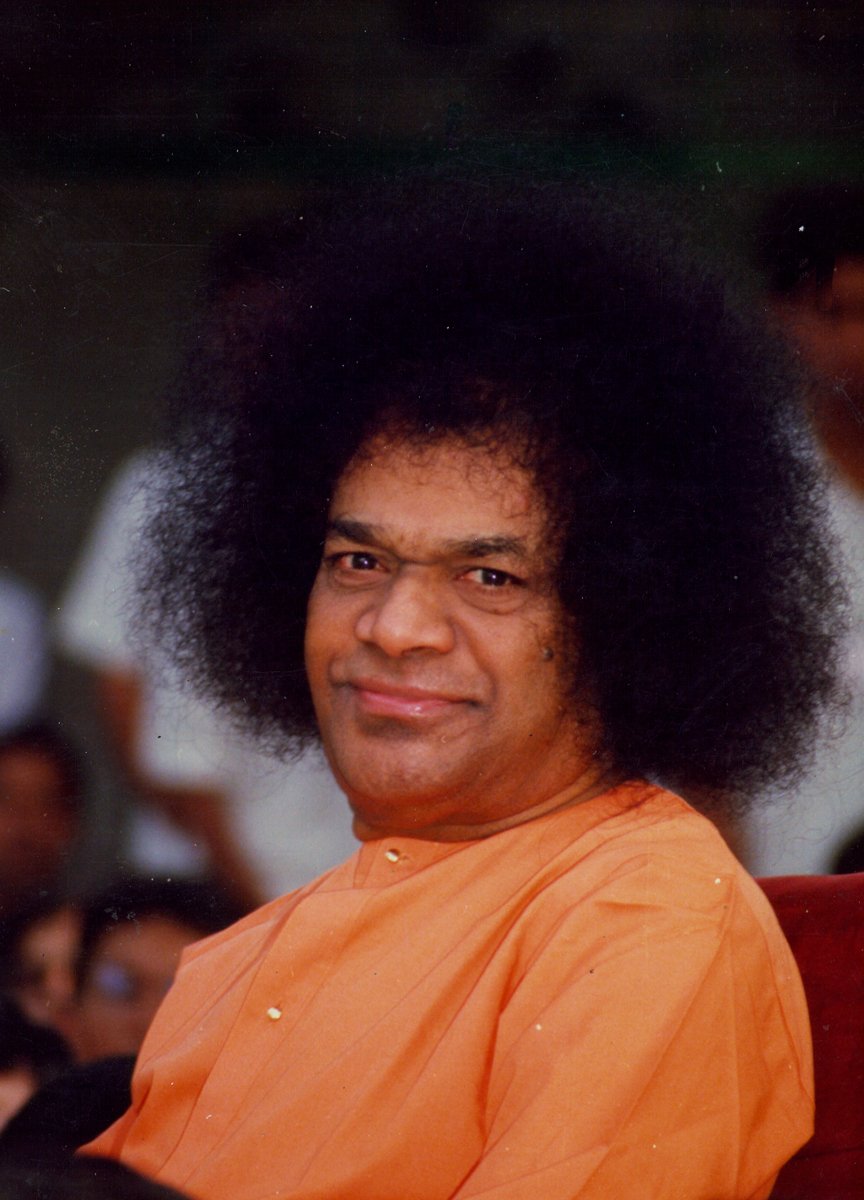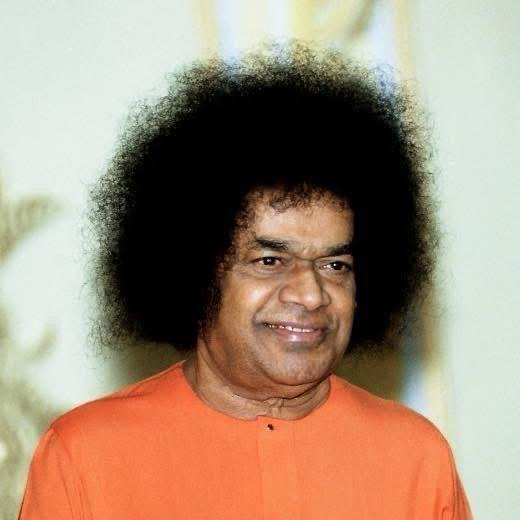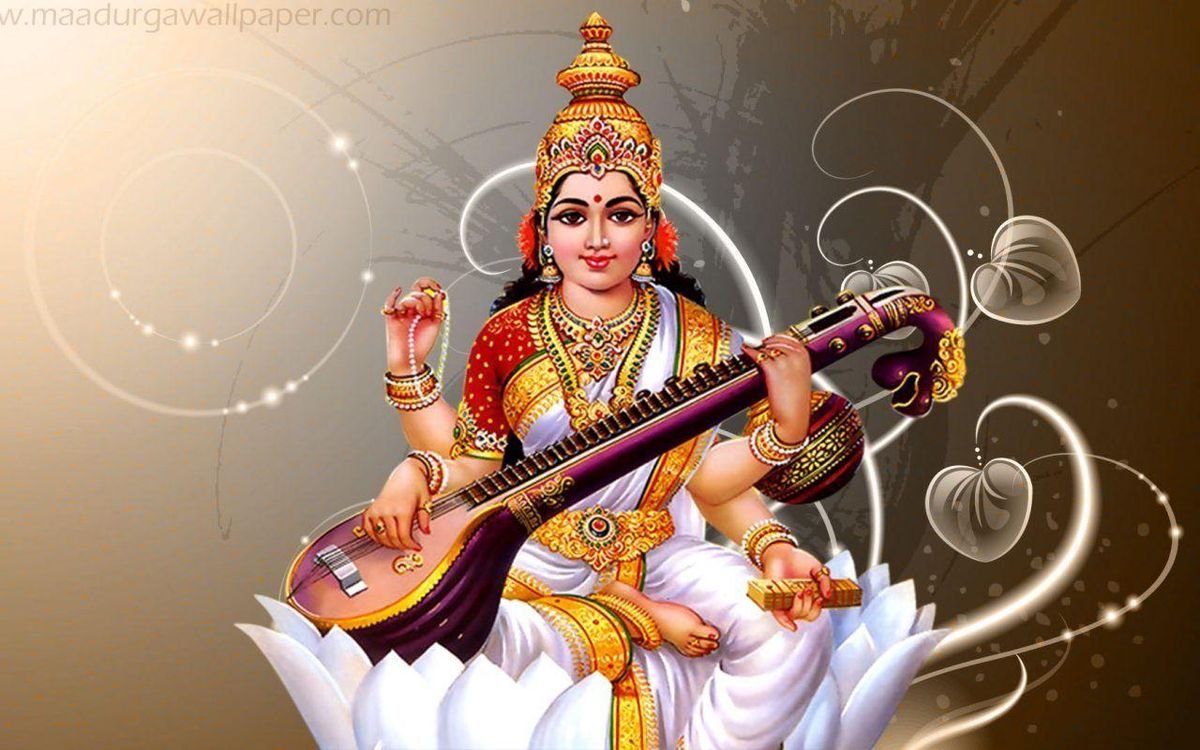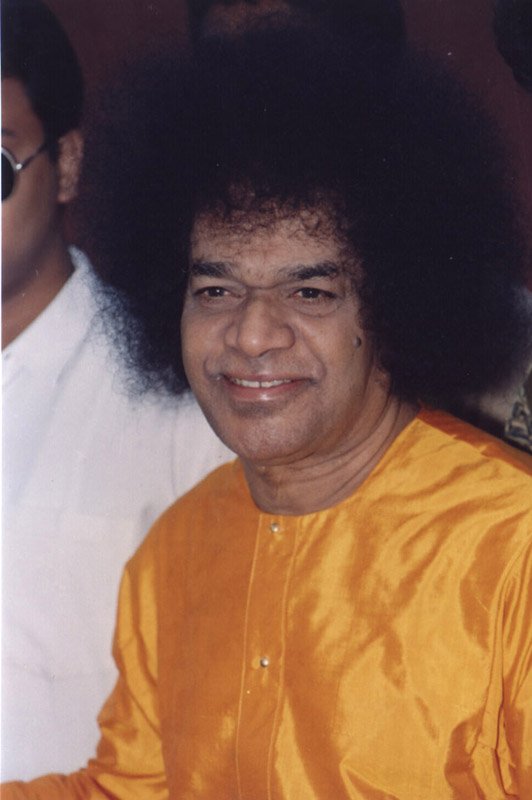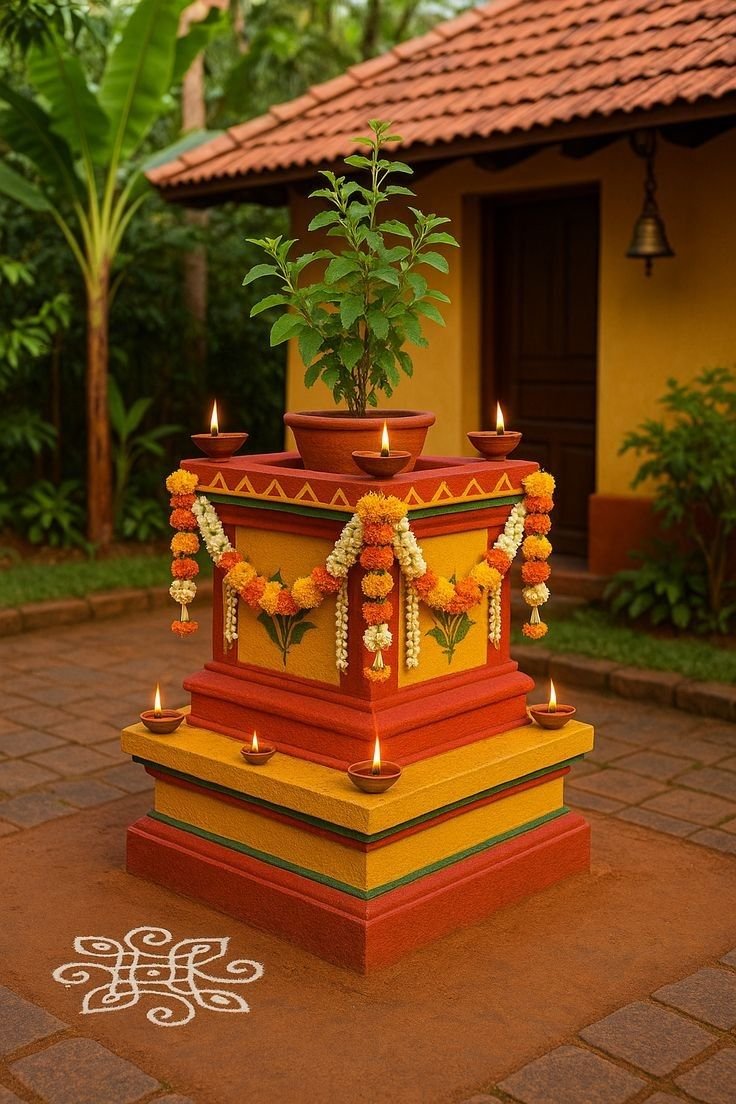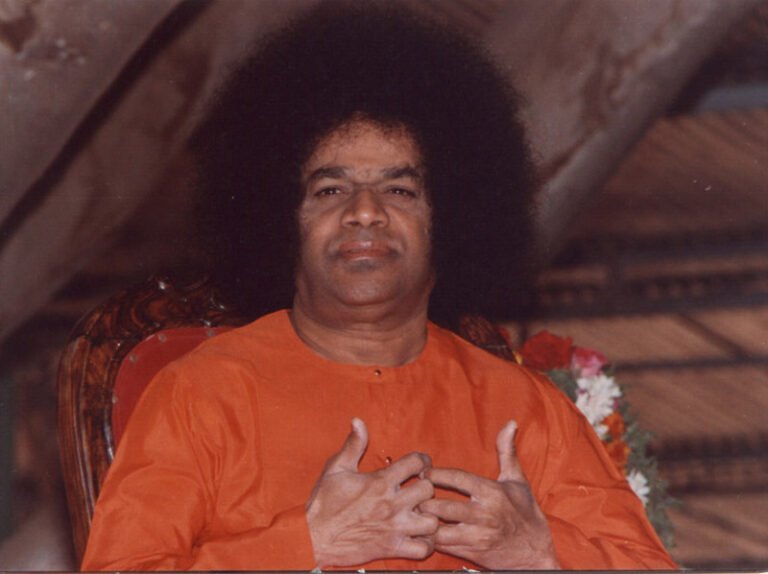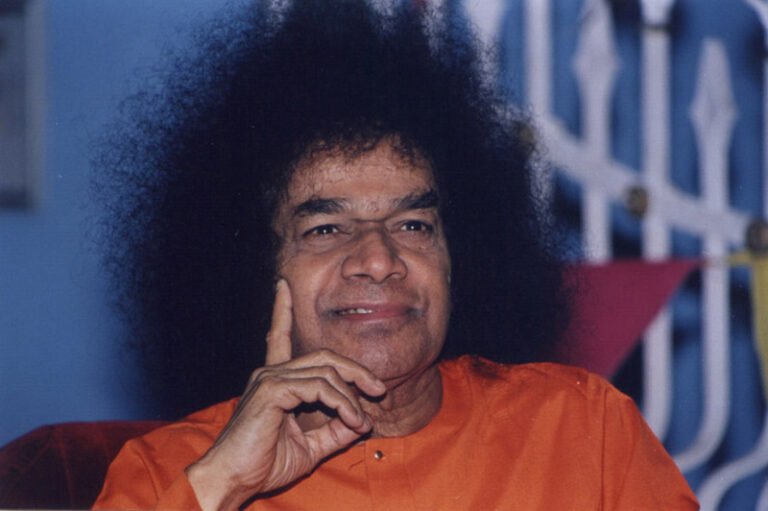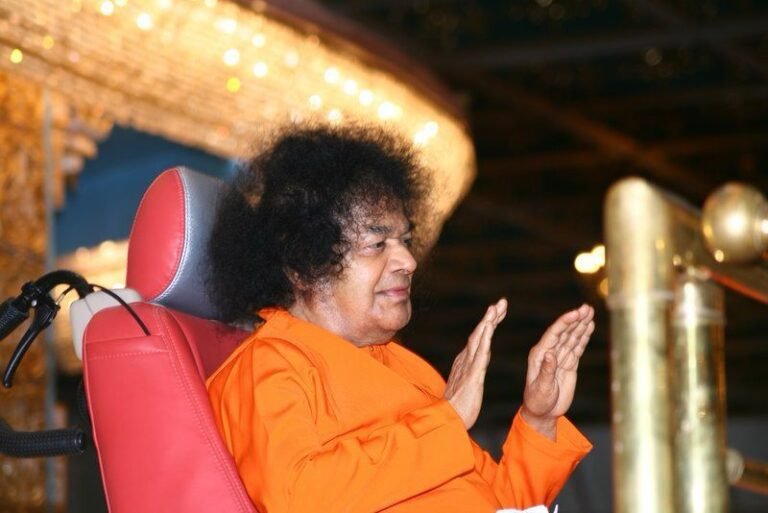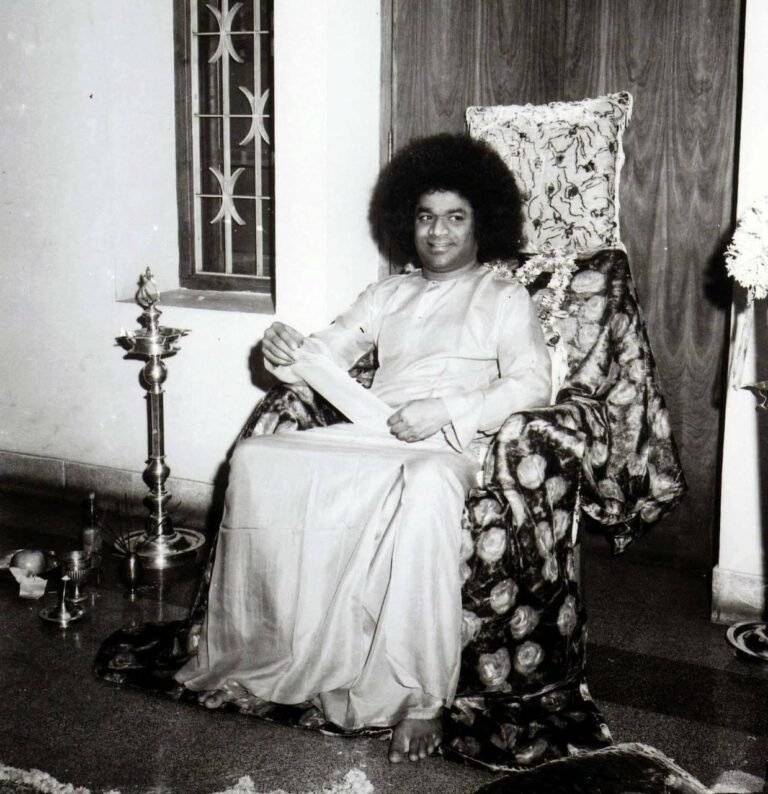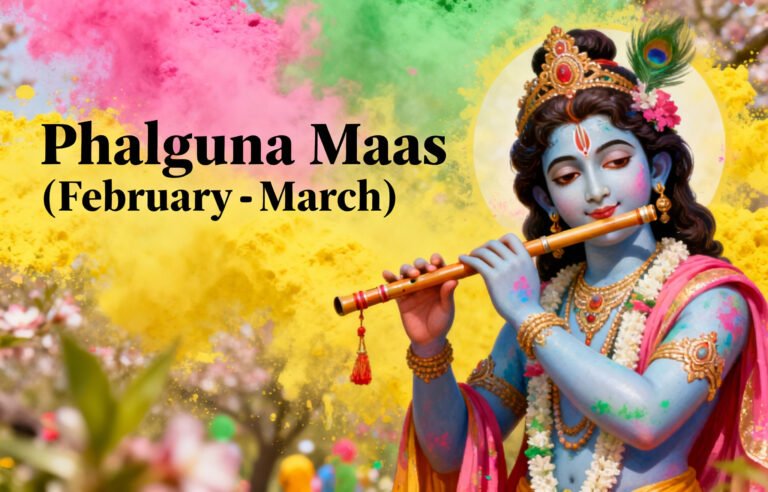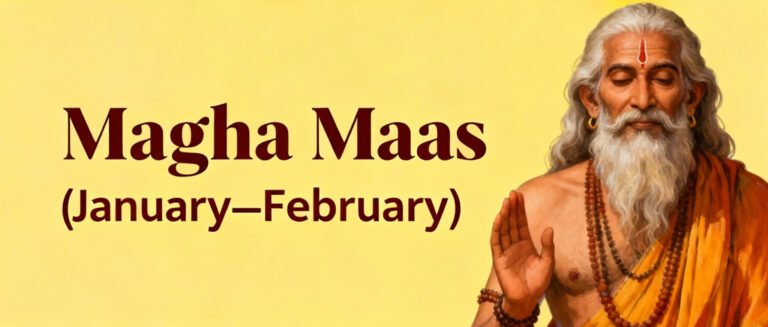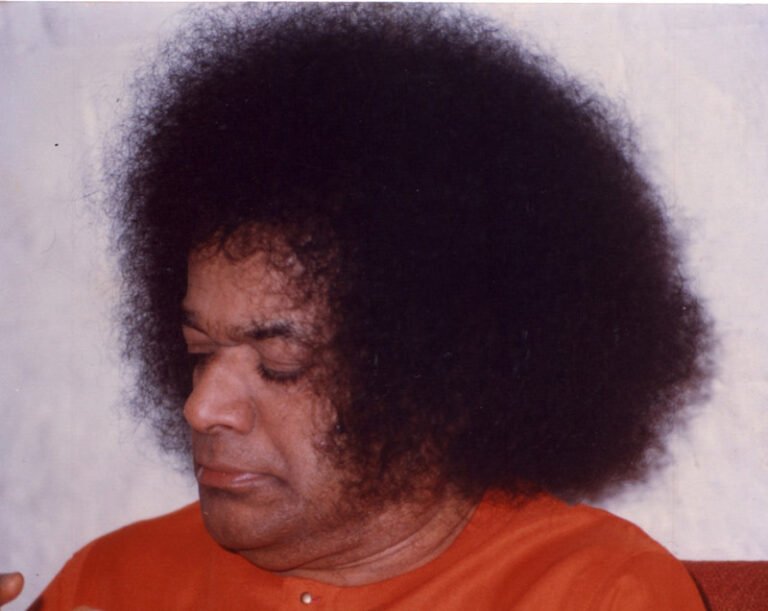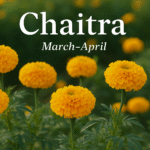Jyeshtha (MayтАУJune)
Ekadashi In The Month Jyeshtha (MayтАУJune)
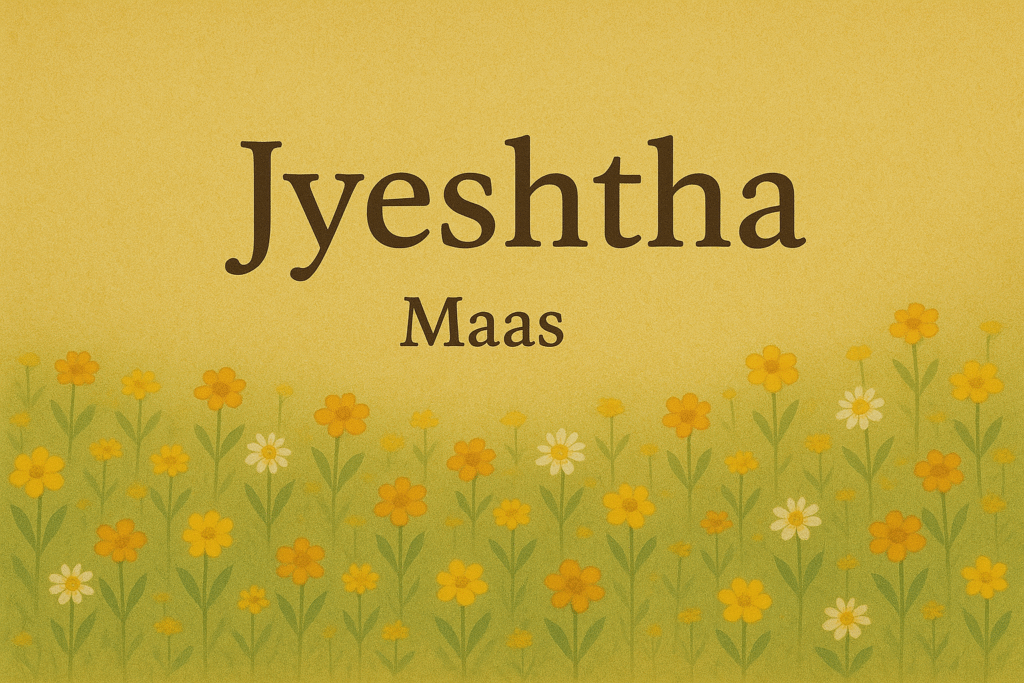
ЁЯМЩ Apara Ekadashi тАУ Krishna Paksha (Jyeshtha Month)
Apara Ekadashi, also known as Achala Ekadashi, is a highly auspicious fasting day that falls in the Krishna Paksha (waning phase of the moon) during the month of Jyeshtha (MayтАУJune). The term тАЬAparaтАЭ means тАЬboundlessтАЭ or тАЬimmeasurableтАЭ, signifying the infinite spiritual merit (punya) that one attains by observing this sacred Ekadashi. It is a day of deep purification, repentance, and divine connection to Lord Vishnu, who grants forgiveness and spiritual upliftment to His devotees.
ЁЯУЬ Mythological Significance
The greatness of Apara Ekadashi is described in the Brahmanda Purana, where Lord Krishna reveals its glory to King Yudhishthira. Lord Krishna explains that those who observe this Ekadashi with devotion are freed from all sins and gain results equivalent to performing great religious acts such as:
- Donating a thousand cows,
- Performing Ashwamedha Yajna,
- Visiting sacred pilgrimages like Haridwar, Kashi, and Kurukshetra, and
- Bathing in holy rivers such as Ganga or Yamuna.
Lord Krishna further narrated that even severe sins like deceit, falsehood, or disrespect toward parents and gurus are washed away by sincerely observing this vrat.
Another story from the Skanda Purana mentions a warrior named Mahatapa, who was once burdened with the sin of violence committed during battles. On the advice of Sage Vasishta, he observed Apara Ekadashi with full devotion and was liberated from his past misdeeds. After death, he attained Vishnuloka, the divine abode of Lord Vishnu.
ЁЯХЙя╕П Spiritual Essence
Apara Ekadashi is not merely a day of fasting but a time to awaken oneтАЩs inner consciousness. The word Apara also implies тАЬunseen merit.тАЭ It is said that the benefits of this vrat are so vast that they cannot be measured тАФ hence, it is called Apara.
It encourages devotees to let go of pride, greed, and ego, helping them seek the LordтАЩs grace through humility and repentance. Observing this day with pure devotion helps one overcome ignorance and walk toward moksha (liberation).
ЁЯМ║ Rituals and Observances
1. Dashami Preparation (Day Before Ekadashi):
- Eat only satvik food (pure vegetarian meals) before sunset.
- Avoid onion, garlic, grains, pulses, and heavy meals.
- Maintain a calm and positive mindset, avoiding anger or gossip.
2. Ekadashi Day (Main Fasting Day):
- Morning:
- Wake up early (before sunrise) and take a holy bath.
- Set up a clean altar with an image or idol of Lord Vishnu (Sri Hari or Narayana).
- Light a ghee lamp and offer flowers, tulsi leaves, sandalwood, fruits, and incense.
- Chant mantras such as тАЬOm Namo Bhagavate VasudevayaтАЭ or recite the Vishnu Sahasranama.
- Read or listen to the Apara Ekadashi Vrat Katha.
- Fasting Rules:
- Nirjala Vrat: No food or water for 24 hours.
- Phalahar Vrat: Only fruits, milk, and water allowed.
- Avoid rice, lentils, beans, or grain-based foods.
- Refrain from engaging in violence, deceit, or idle talk.
- Evening:
- Offer Aarti to Lord Vishnu and sing devotional songs.
- Stay awake at night (Jagran) and spend time chanting the LordтАЩs name.
3. Dwadashi (Next Morning тАУ Breaking the Fast):
- End the fast after sunrise by offering prayers to Lord Vishnu.
- Perform daan (charity) тАФ donating food, clothes, or money to the needy or Brahmins.
- Feed cows, birds, or the poor to complete the vrat with gratitude.
ЁЯМ┐ Benefits of Apara Ekadashi Vrat
тЬЕ Material and Spiritual Prosperity:
Observing Apara Ekadashi brings abundance, peace, and happiness in family life.
тЬЕ Forgiveness of Sins:
It absolves one from the effects of negative karma, freeing the soul from past misdeeds.
тЬЕ Protection from Evil:
It shields the devotee from evil influences, diseases, and misfortune.
тЬЕ Salvation (Moksha):
Those who observe this fast with full faith attain Vishnuloka тАФ the abode of Lord Vishnu.
тЬЕ Peace and Purity:
It helps cultivate mental clarity, emotional balance, and spiritual wisdom.
тЬи DoтАЩs and DonтАЩts on Apara Ekadashi
тЬЕ DoтАЩs:
- Keep thoughts pure and engage in bhajans or kirtan.
- Read sacred scriptures like Bhagavad Gita or Vishnu Purana.
- Practice silence and self-control.
- Offer tulsi leaves and flowers to Lord Vishnu.
ЁЯЪл DonтАЩts:
- Avoid consuming grains, onion, garlic, or non-vegetarian food.
- Refrain from anger, lies, and criticism.
- Do not engage in violence or material indulgence.
ЁЯУЦ Scriptural Reference
In the Brahmanda Purana, Lord Krishna says to Yudhishthira:
тАЬHe who observes Apara Ekadashi with devotion will never fall into the darkness of ignorance. Even great sins are erased, and the soul attains the supreme abode.тАЭ
ЁЯТл Essence of Apara Ekadashi
Apara Ekadashi teaches that true freedom comes through humility, faith, and repentance. Just as Lord Vishnu protects and uplifts all beings, this sacred vrat protects devotees from misfortune and leads them to divine light.
It is a reminder that no matter how grave oneтАЩs past mistakes may be, sincere devotion and selfless fasting can wash away all impurities, guiding the soul toward eternal peace and union with the Supreme Lord Vishnu.

ЁЯМЮ Nirjala Ekadashi тАУ Shukla Paksha (Jyeshtha Month)
Nirjala Ekadashi, also known as Pandava Ekadashi or Bhima Ekadashi, is one of the most powerful and spiritually significant Ekadashis in the Hindu calendar. It is observed during the Shukla Paksha (waxing phase of the moon) in the month of Jyeshtha (MayтАУJune). The word тАЬNirjalaтАЭ means тАЬwithout water,тАЭ and this Ekadashi is unique because devotees observe a strict fast without food or even a single drop of water for 24 hours, dedicating the day entirely to Lord Vishnu.
It is believed that observing this single fast with utmost devotion grants the same spiritual merit as observing all the other 24 Ekadashis of the year combined.
ЁЯУЬ Mythological Significance
The Nirjala Ekadashi Vrat Katha is described in the Brahma Vaivarta Purana and the Mahabharata.
According to the legend, Bhima, the second of the Pandava brothers, loved to eat and found it difficult to fast twice a month on Ekadashi days like his brothers. Feeling guilty about breaking the sacred practice, he approached Sage Vyasa for guidance. The sage advised Bhima to observe one Ekadashi fast in the year without food or water тАФ the Nirjala Ekadashi тАФ which would offer him the same merit as observing all the other Ekadashis.
Bhima, with strong determination, observed the Nirjala fast and received Lord VishnuтАЩs blessings. From that time, this Ekadashi became known as Bhima Ekadashi or Pandava Ekadashi.
This sacred fast is said to free devotees from all sins, grant long life, good health, prosperity, and ultimately lead the soul to Vaikuntha, the divine abode of Lord Vishnu.
ЁЯМ╝ Rituals and Observance
1. Preparation (Dashami тАУ Day Before Ekadashi)
- Consume only a light, satvik meal before sunset.
- Avoid grains, beans, lentils, onions, garlic, and spicy or heavy foods.
- Chant Vishnu mantras and meditate on the LordтАЩs form to purify the mind.
2. Main Day (Ekadashi)
- Early Morning:
- Wake up before sunrise and take a holy bath (preferably with Ganga Jal or water mixed with tulsi leaves).
- Set up an altar with an image or idol of Lord Vishnu or Sri Hari.
- Offer sandalwood paste, tulsi leaves, flowers, fruits, incense, and ghee lamps.
- Recite Vishnu Sahasranama, Bhagavad Gita Chapter 15, or Nirjala Ekadashi Vrat Katha.
- Fasting:
- Do not consume food, water, or even fruits for 24 hours.
- Avoid sleep during the day and spend time chanting Lord VishnuтАЩs name or reading scriptures.
- Devotees engage in bhajans, kirtans, and meditation to stay spiritually focused.
3. Parana (Breaking the Fast тАУ Dwadashi Day)
- Break the fast after sunrise and after offering prayers to Lord Vishnu.
- Drink water first, followed by light satvik food.
- Donate food, water, or clothes to Brahmins, saints, or the needy.
- Feeding cows or offering water to travelers is considered very auspicious.
ЁЯМ┐ Spiritual Benefits of Nirjala Ekadashi
- Forgiveness of Sins: It is said to remove the effects of all previous karmas and grant spiritual purity.
- Equal to All Ekadashis: Observing Nirjala Ekadashi once is equivalent to keeping fast on all 24 Ekadashis in a year.
- Longevity and Prosperity: It ensures good health, happiness, and divine protection from misfortune.
- Gateway to Moksha: Devotees who faithfully observe this vrat are believed to attain liberation and reach Vaikuntha.
- Purification of Mind and Soul: It helps in overcoming desires, controlling senses, and deepening devotion.
ЁЯМ║ DoтАЩs and DonтАЩts on Nirjala Ekadashi
тЬЕ DoтАЩs:
- Maintain complete purity of body and mind.
- Spend the day in meditation, prayers, and chanting тАЬOm Namo Bhagavate Vasudevaya.тАЭ
- Help those in need by offering water, food, or donations after completing the fast.
- Stay calm and avoid anger or negativity.
ЁЯЪл DonтАЩts:
- Do not consume any food, water, or grains during the fast.
- Avoid violence, deceit, or false speech.
- Do not indulge in entertainment or worldly distractions.
ЁЯУЦ Scriptural Reference
In the Brahma Vaivarta Purana, Lord Krishna tells Bhima:
тАЬO Bhima, the Nirjala Ekadashi is the most powerful among all Ekadashis. One who observes it with faith and devotion attains the merit of all other Ekadashis combined. Such a soul becomes pure and reaches My divine abode.тАЭ
ЁЯТл Essence of Nirjala Ekadashi
Nirjala Ekadashi represents ultimate devotion, sacrifice, and discipline. By giving up even water тАФ the most essential element of life тАФ devotees express their unshakable faith in Lord Vishnu. It teaches that true devotion lies not merely in ritual fasting but in surrendering oneтАЩs ego and desires to the Divine.
This Ekadashi inspires self-control, inner strength, and unwavering faith, helping devotees transcend physical limitations and attain the highest spiritual consciousness.
By observing Nirjala Ekadashi with a pure heart, one is blessed with purity, strength, and eternal peace, along with the supreme grace of Lord Vishnu тАФ the protector of all beings.

